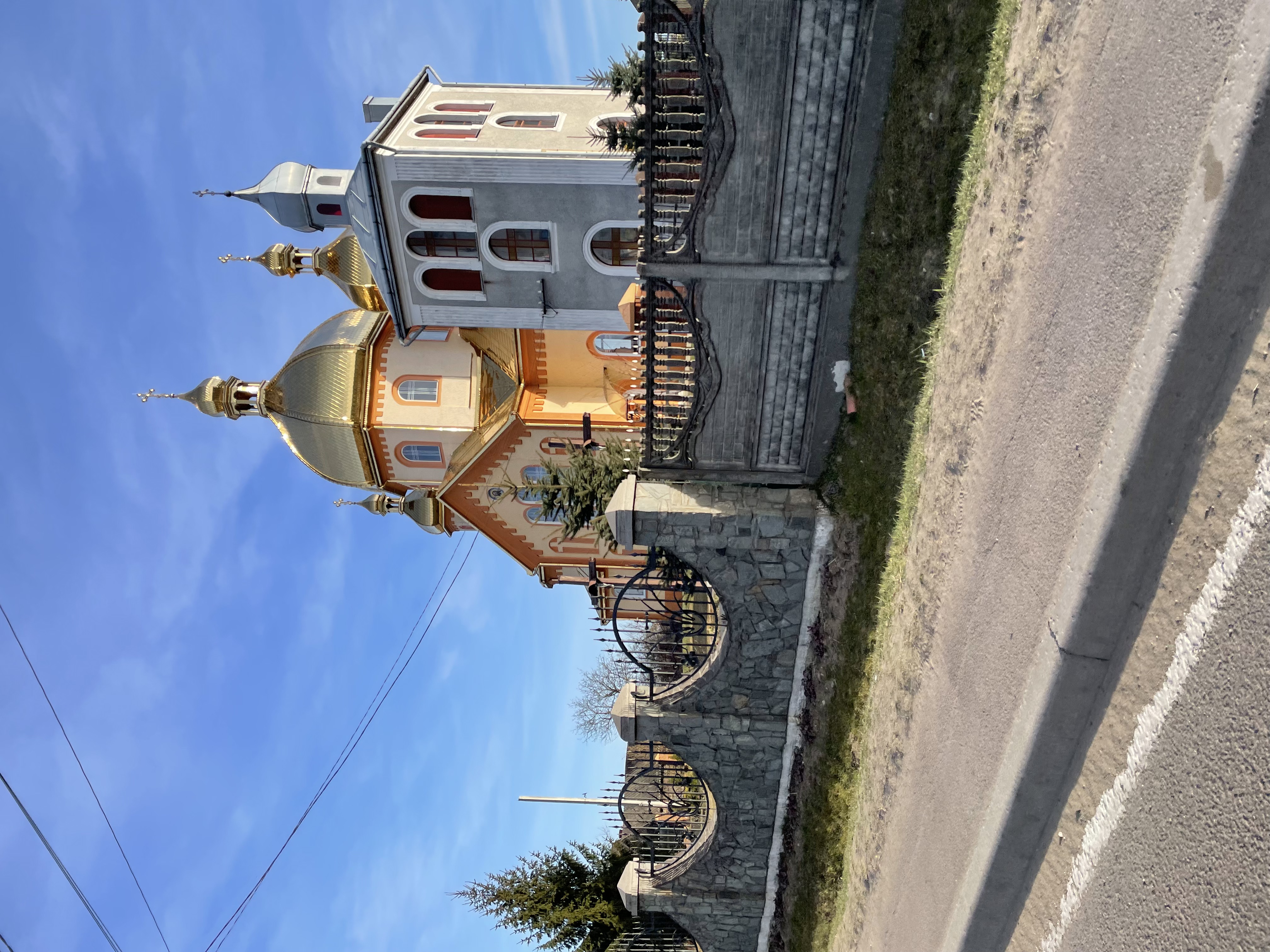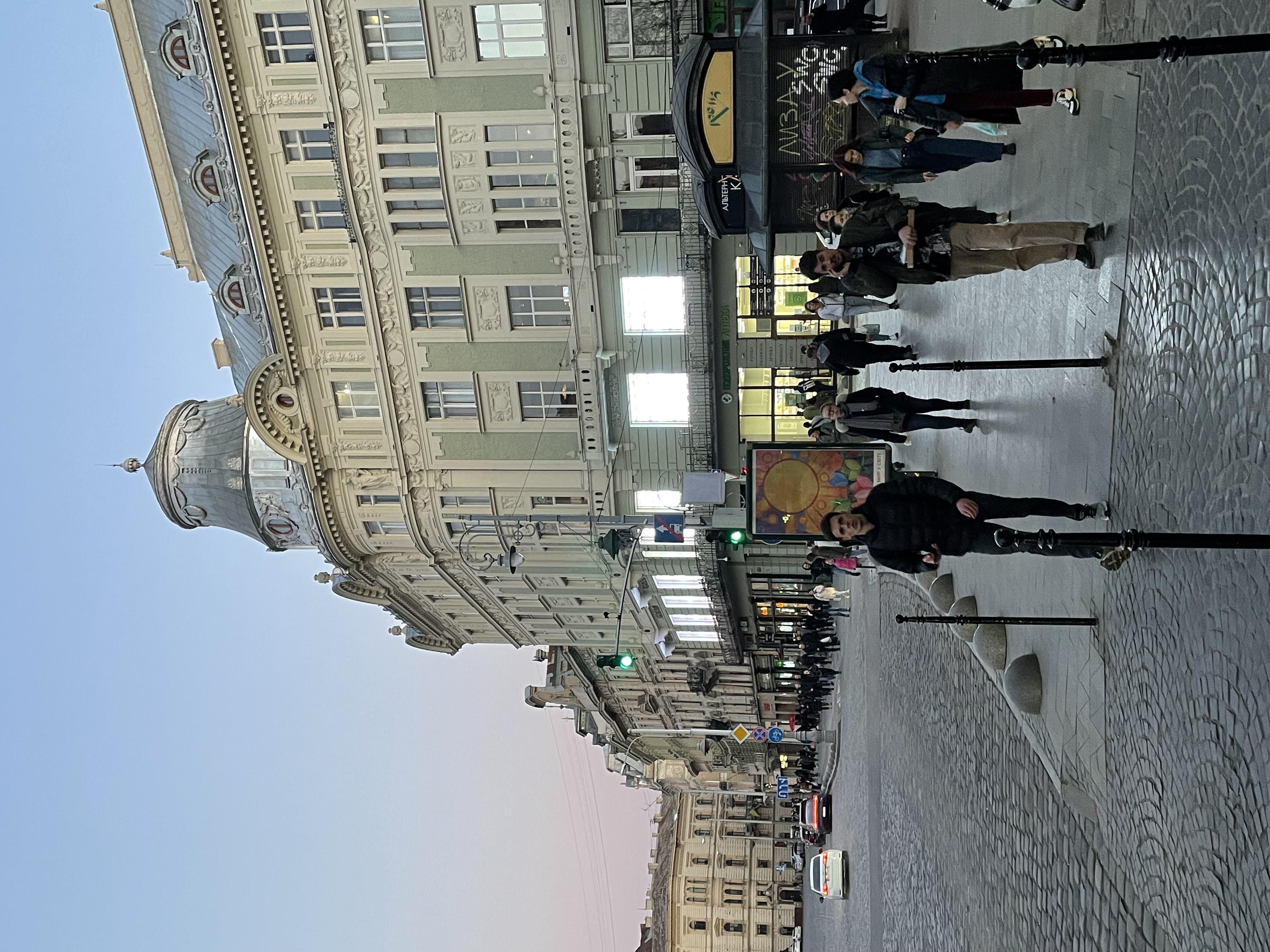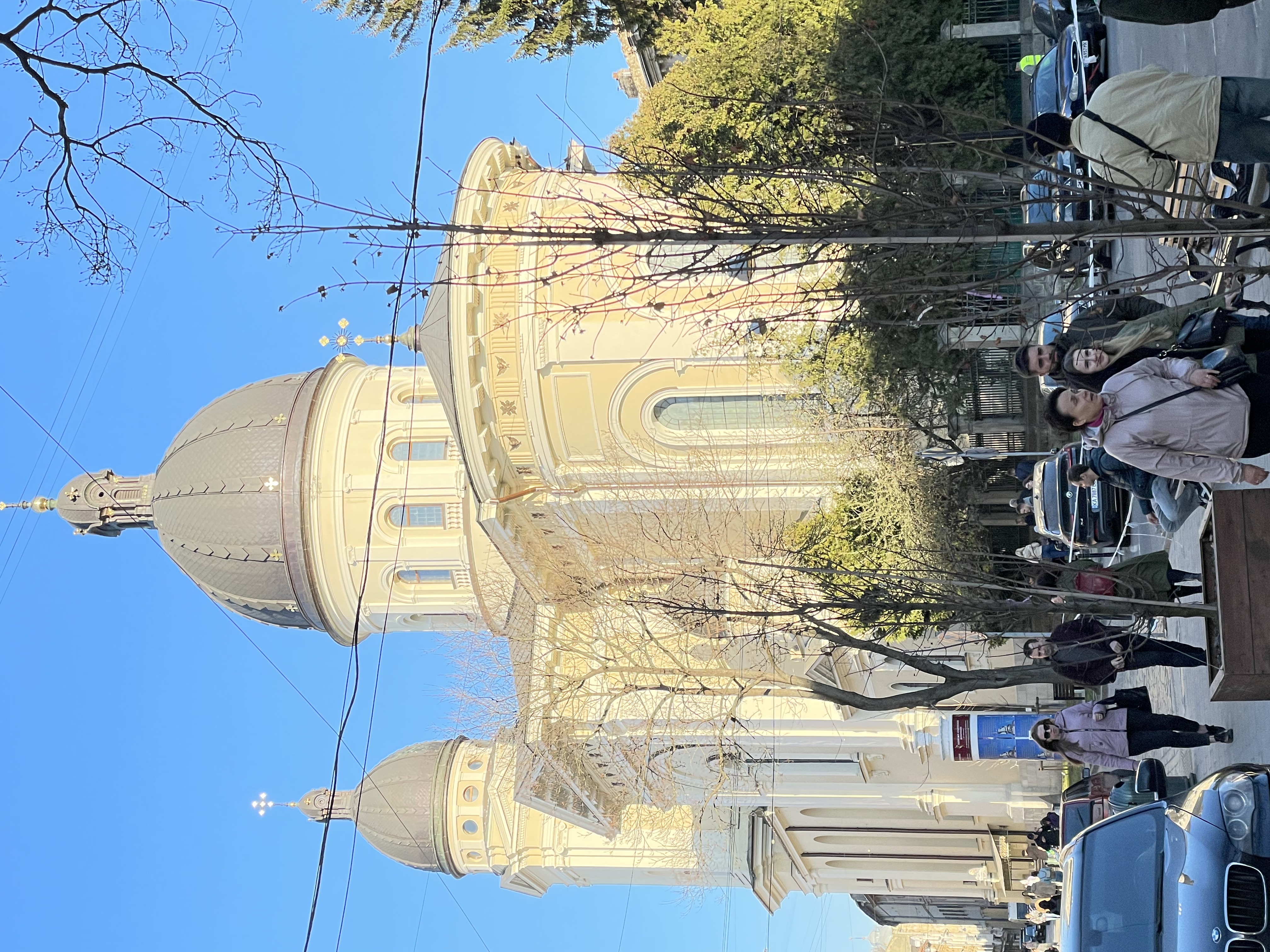Arrival In Lviv

I arrived in Lviv in the early evening in a taxi from the border. Western Ukraine felt familiar from my decade of living and traveling in the post-Soviet space. Gold Orthodox church domes gleamed in the late afternoon sun and the small stores with hard salamis, beer, soft drinks and bread seen everywhere in Ukraine (and Russia) dotted the roadside in the small cities and towns on the way from the border. Lviv was new to me, though. It is kind of familiar because it reminds of Prague, Krakow, and other cities of the old Austro-Hungarian Empire, but it is one of the few sizable Ukrainian cities I haven't seen. The population is about 800,000 people, but I was told that refugees had swelled the city to around 1,200,000. No one is very sure, though. On the way to Lviv, I feel the anticipation of seeing a city new to me, mixed with uncertainty at what I would see of the humanitarian crisis there. Through personal contacts, I plan to visit refugee centers, meet with local officials and see the system at the train station for people arriving from Kharkiv, Kyiv and Mariupol and for those headed west to Poland.
I wondered about speaking Russian in Ukraine and if there would be issues. In Poland, surprisingly, it was not a problem. Before I came, a Russian friend still living there, but who is opposed to the war, told me that he heard Russian speakers faced attacks on the street. But that wasn't my experience, at all. There were refugees everywhere speaking both Russian and Ukrainian. I discovered that the younger people speak English as a second language and the older folks can communicate in Russian since it was obligatory to learn when Poland was under the Soviet Union's thumb. But when I crossed the border, there was no issue with Ukrainian control or customs or in negotiating a cab to Lviv, about 50 miles east of the border.
 The center of Lviv was full of activity at around 7:00 p.m. when I found the place where I am staying on central Svoboda Prospekt. I checked in, communicated with contacts and fell asleep. My day started in Rzeszow, Poland not more than 150 miles west of Lviv. But travel by train, car and nearly 3 hours at the border is tiresome. I have crossed borders more times than I can count between Russia, Ukraine, and other post-Soviet states. The lines, questions and time make for a long day. And I had a short night, the night before. Later, I was woken to the sound of air raid sirens- the result of several rocket attacks on Lviv in recent weeks. There is a curfew, too. Everyone must be off the streets and inside by 10:00 p.m. Accordingly, the restaurants are almost all closed and locked up by 8 p.m.
The center of Lviv was full of activity at around 7:00 p.m. when I found the place where I am staying on central Svoboda Prospekt. I checked in, communicated with contacts and fell asleep. My day started in Rzeszow, Poland not more than 150 miles west of Lviv. But travel by train, car and nearly 3 hours at the border is tiresome. I have crossed borders more times than I can count between Russia, Ukraine, and other post-Soviet states. The lines, questions and time make for a long day. And I had a short night, the night before. Later, I was woken to the sound of air raid sirens- the result of several rocket attacks on Lviv in recent weeks. There is a curfew, too. Everyone must be off the streets and inside by 10:00 p.m. Accordingly, the restaurants are almost all closed and locked up by 8 p.m.
A few months ago, few people in the U.S. knew where Lviv is or had even heard of it. Now it is on everyone's tongue and in the news every day. A few million refugees moving through a city and some rocket attacks will do that.

 Post a Comment
Post a Comment  Wednesday, April 6, 2022 at 8:41PM
Wednesday, April 6, 2022 at 8:41PM 







Reader Comments